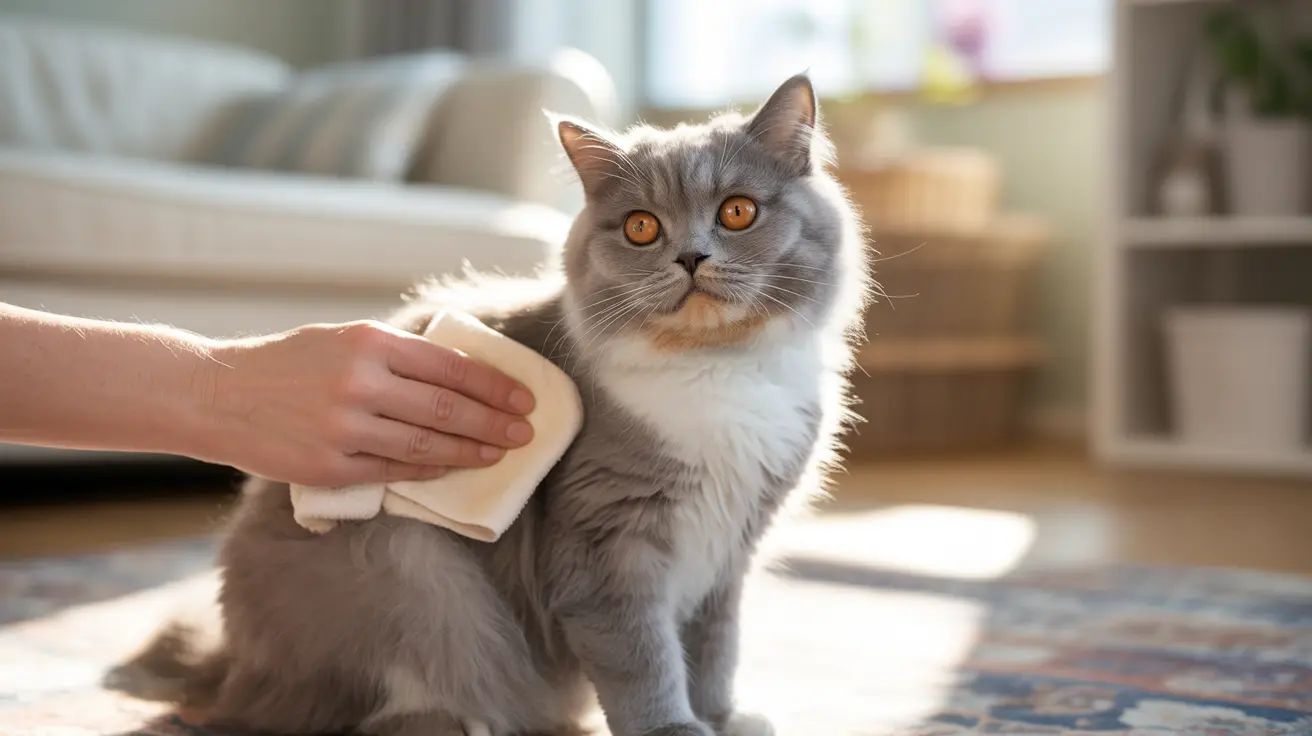If you've noticed your cat sneezing frequently, you're not alone. Excessive sneezing in cats is a common concern that can signal various underlying health issues, from minor irritants to more serious respiratory infections. Understanding why your cat is sneezing and what it means is crucial for providing proper care and knowing when to seek veterinary attention.
In this comprehensive guide, we'll explore the various causes of frequent sneezing in cats, discuss treatment options, and help you understand when your cat's sneezing requires immediate medical attention.
Common Causes of Excessive Sneezing in Cats
Viral Infections
The most common cause of frequent sneezing in cats is viral infections, particularly Feline Herpesvirus Type-1 (FHV-1) and Feline Calicivirus (FCV). These viruses account for approximately 90% of upper respiratory infections in cats. Once infected with herpesvirus, cats become lifelong carriers, with symptoms potentially recurring during times of stress.
Bacterial Infections
Secondary bacterial infections often develop following a viral infection, leading to more severe symptoms. Common bacterial culprits include Mycoplasma pneumoniae, Bordetella bronchiseptica, and Chlamydia psittaci. These infections typically cause thick, colored nasal discharge along with persistent sneezing.
Identifying Additional Symptoms
While sneezing might be the most noticeable symptom, watch for these accompanying signs:
- Nasal discharge (clear, white, or colored)
- Watery or irritated eyes
- Decreased appetite
- Lethargy
- Fever
- Difficulty breathing
- Oral ulcers (especially with calicivirus)
When to Seek Veterinary Care
If your cat's sneezing persists for more than 4 days or is accompanied by any of these warning signs, consult your veterinarian immediately:
- Colored nasal discharge
- Reduced appetite lasting more than 24 hours
- Difficulty breathing
- Lethargy or depression
- Signs of dehydration
- Eye discharge or squinting
Treatment Options for Sneezing Cats
Supportive Care
For mild cases, supportive care at home may be sufficient:
- Keep the nose and eyes clean with warm, damp cloths
- Use a humidifier to moisturize the air
- Ensure fresh water is always available
- Encourage eating by warming food slightly to enhance aroma
Medical Intervention
Your veterinarian may recommend:
- Antibiotics for bacterial infections
- Antiviral medications for severe herpesvirus infections
- Eye medications if conjunctivitis is present
- Fluid therapy if dehydration occurs
Prevention Strategies
To minimize the risk of respiratory infections that cause sneezing:
- Keep vaccinations current, especially the FVRCP vaccine
- Reduce stress in your cat's environment
- Maintain good hygiene in multi-cat households
- Isolate sick cats from healthy ones
- Schedule regular veterinary check-ups
Frequently Asked Questions
Why is my cat sneezing so much, and what are common causes of frequent sneezing in cats?
Frequent sneezing in cats is most commonly caused by upper respiratory infections, particularly from feline herpesvirus and calicivirus. Other causes include environmental irritants, bacterial infections, or foreign objects in the nasal passages.
How can I prevent my cat from getting upper respiratory infections like feline herpesvirus and calicivirus?
Maintain regular vaccinations, reduce environmental stress, practice good hygiene, and keep your cat's living area clean. In multi-cat households, isolate sick cats to prevent spread of infection.
What are the best ways to manage and treat sneezing in cats, including supportive care and medication options?
Provide supportive care through humidity, gentle cleaning of discharge, and ensuring adequate hydration and nutrition. For bacterial infections, veterinary-prescribed antibiotics may be necessary. Never use human cold medications.
Can dental problems cause sneezing in cats, and how can I identify if this is the case?
Yes, dental infections can cause sneezing due to the proximity of tooth roots to nasal passages. Signs include bad breath, difficulty eating, and facial swelling. A veterinary examination can determine if dental issues are causing the sneezing.
What should I do if my cat's sneezing persists or is accompanied by other concerning symptoms like nasal discharge or lethargy?
If sneezing persists beyond 4 days or is accompanied by colored discharge, lethargy, or decreased appetite, seek immediate veterinary care. These symptoms could indicate a serious infection requiring medical intervention.
Conclusion
While frequent sneezing in cats can be concerning, understanding its causes and knowing when to seek veterinary care is crucial for your pet's health. Most cases resolve with proper care and treatment, but always err on the side of caution if symptoms persist or worsen.






